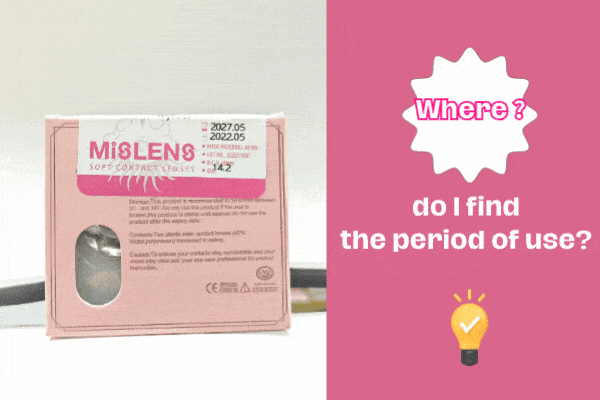Almost the vast majority of people who use and buy contact lenses pay attention to the period of use, i.e., Yearly Lenses, monthly lenses, daily lenses, etc. Mislens mainly sells Yearly disposable color contacts and daily disposable contacts. After all, when purchasing contact lenses, they are differentiated according to the period of use. But almost no attention is paid to the expiration date of lenses on the lenses' packaging. Usually expired contact lenses don't look like much, so is it possible to wear them for a while longer?

First, let's find out the expiration dates of various types of lenses.
Generally, Yearly color contact lenses should not be used for more than 10 months at most (We recommend that you replace them in 6 months), and semi-annual contact lenses should not be used for more than 5 months at most. Monthly contact lenses are recommended to be used only for about 20 days. and Daily disposable contact lenses are recommended to be used for 1 day only and discarded when finished. Contact lenses generally have a shelf life of 3 to 5 years, so as long as they are within this range they can be used without worry. The longer the use cycle, the more serious the protein precipitation residue will be when not properly cleaned or maintained, affecting your eye health.
So going back to the previous question, can you wear expired contact lenses for a while longer?
The answer is no! Once color contact lenses have expired, not only will the lenses age quickly, but the amount of shrinkage will also decrease dramatically, causing the lenses to rub against the eyeballs more. As a result, they can be worn with a slight stinging sensation and become more prone to dryness and tearing. So where do you see the expiration date on Mislens lenses? As shown in the picture:

Some people think that if the lenses are not broken, they can be worn more often. But the fact is that even if you scrub carefully, there will always be protein deposits left on the lens, and when they accumulate, they will block the oxygen permeability holes and aggravate corneal hypoxia. At the same time, the protein deposits are also easy to become a place for bacteria to gather and reproduce, which can cause corneal ulcers, vision loss, and even permanent blindness.
The eye is a very delicate organ, so don't continue to use expired contact lenses just to save money. If you are worried about forgetting the date, you can mark the contact lens case.
How to choose the right colored contact lenses? See the next blog post: How To Choose Gray Natural Contacts For Dark Eyes?


1 comments